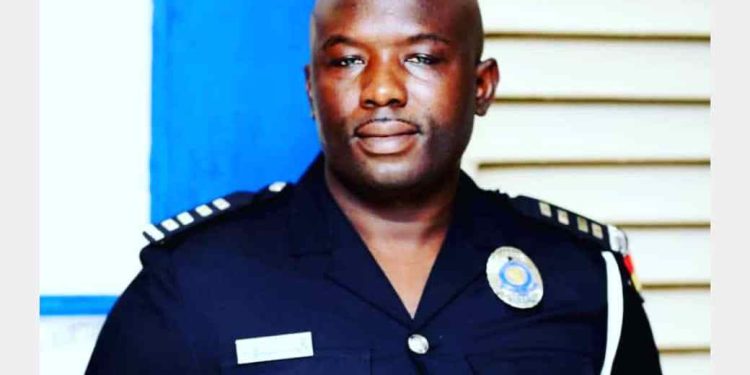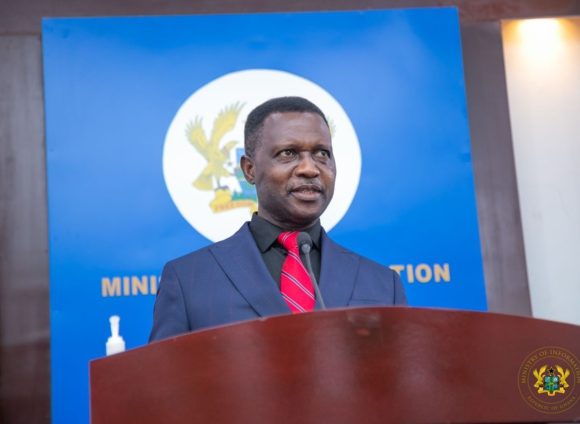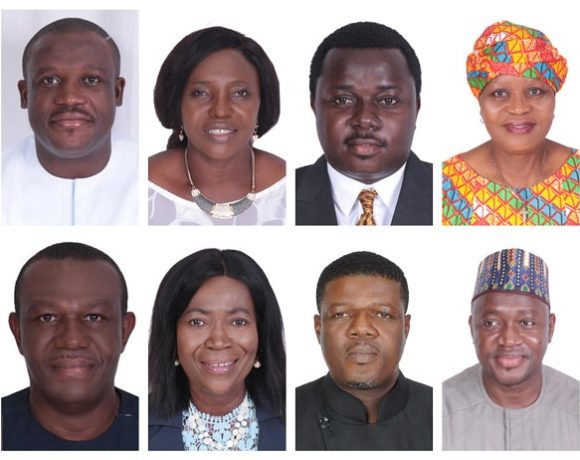Terrorism threats: What we should lookout for in young adults and children in communities [Article]

Terrorists exploit vulnerable groups and use them to their advantage to achieve their goals. Our children and young people fall within these vulnerable groups that can be exploited to our disadvantage and used against us.
What are we doing about our young people in the wake of reports of existential threats of terror, and how do we know they are being targeted for exploitation?
Many of the recent reports of how close Armageddon -terror—terrorist activities – radicalisation – extremist groups and plus their activities—bombings we hear on the radio and watch on the television happening in other parts of the world at least, per what we have seen and heard, is more existential than ever. It is closer than ever thought by any Analyst a few years ago.
Our neighbours—Burkina Faso, Ivory Coast, and the safe Atlantic Ocean and Togo, have all had a taste of what terror attacks look like. They have seen in real life -not on television, or over the radio, what terrorism is all about.
Perhaps we can assume right now that it got to them easily and so quickly because they took things for granted and did not plan adequately for it. This kind of thinking makes a fair argument, but unfortunately, it may not represent the whole gamut of the reasons why they got attacked -at least—from the academic point of view.
The terrorist groups as we know them, are very sophisticated, complicated and very knowledgeable in the area of security, diplomacy, intelligence and international relations. They know who to strike at any point in time to send a political statement across regions of the world to show that they don’t like certain posturings of the country they have chosen to attack, just so that their allies will know that they are serious about their actions or intentions. This they would usually do to scare nations that take a certain position against them and to make the point that they are strong on the ground.
Thank God that internationally, Ghanaians have not made statements politically or taken decisions that can be said to be injurious to any other country, country or group of people. We continue to maintain our ‘Dzi wu fie asem’ international relations policy ala nonaligned ideology where we don’t side with any nation against the other but always try to tow the middle line.
But nonetheless, let’s not take that for granted and assume that terror attacks will continue to be heard far from us in other countries and not on our soil even when they get so close and especially so when the new breed of terror groups are radicalised along a certain line where they see other religions apart from that which they believe in and try to force them to tow their line.
These new breed of terror agents, infiltrate nations they intend to set base on through various clever ways by beginning to radicalise young people to carry out their nefarious activities in the country sometimes without they themselves haven to physically be present.
The following ways are which we should concentrate our efforts and energies on to ensure that these terror groups out there don’t sit far away and grow homegrown radicals capable of wrecking havoc in the country sometime to come.
How does our young people and children get radicalised?
There is no single route to radicalisation in children and young adults. However, there are some behavioural traits that could indicate that your child or young adult has been exposed to radicalising influences.
Radicalisation in young adults and children can happen over a long period of time. In some cases it is triggered by a specific incident or news item and can happen much quicker. Sometimes there are clear warning signs of radicalisation, in other cases the changes are less obvious.
The teenage years are a time of great change and young people often want to be on their own, easily become angry and often mistrust authority.
This makes it hard to differentiate between normal teenage behaviour and attitude that indicates your child may have been exposed to radicalising influences.
The following behaviours listed here are intended as a guide the country and parents alike to help us identify possible radicalisation of the youth and young children.
Outward appearance
Becoming increasingly argumentative. That is, argues about religion passionately as though there is no tomorrow.
Refusing to listen to different points of view when arguing on the lines of religion.
Unwilling to engage with children or other young people who are of different religious backgrounds.
Becoming abusive to young adults or children who are different religious backgrounds from that which they believe in
Embracing conspiracy theories biased on what he has heard from other people especially extremist groups he or she sees as mentors. Shouting praises for such people even when they are killed for the wrong reasons.
Feeling persecuted and thinking that the religion he or she believes in is under attack from other religions and so he feels obligated to rise up to the challenge to fight on a certain path to defend his religion
Changing friends and appearance; that is, all of the sudden, his way of dressing as well as friends changes to people ways that can be said to be conservative in nature.
Distancing themselves from old friends. Old friends he sees as not practicing or believing in what he believes in or perhaps are not doing it the right way and so he needs to drop them and make new ones.
No longer doing things they used to enjoy. He or she all of the sudden stops to sing, dance, enjoy music, go out with friends etcetera by assigning reasons which include that all such things will send them to hell
Converting to a new religion. Mostly, people who embrace radicalisation quickly are converts. They appear to be in the majority because usually when they accept the new religion, they tend to believe everything they are told including the ones that say they should die in order to make it to heaven.
Being secretive and reluctant to discuss their whereabouts. When young people radicalise they assume a certain status that is usually passed to them by their masters that they are a special breed of people who don’t need to open up everything about themselves to the rest of the world. They’re actually told to see the world as full of evil that deserves to be cleaned before it can get perfect.
Sympathetic to extremist ideologies and groups. As I indicated earlier on, young people who are on their way to be radicalised, share in the honor of their masters who carry out successful attacks and are talked about in the media. In the same vein, they express sorrow and grief anytime they hear news terrorists being killed.
Source:Detective Chief Inspector Mohammed Abdul Hanan EL-Saeed Police Headquarters, Accra




